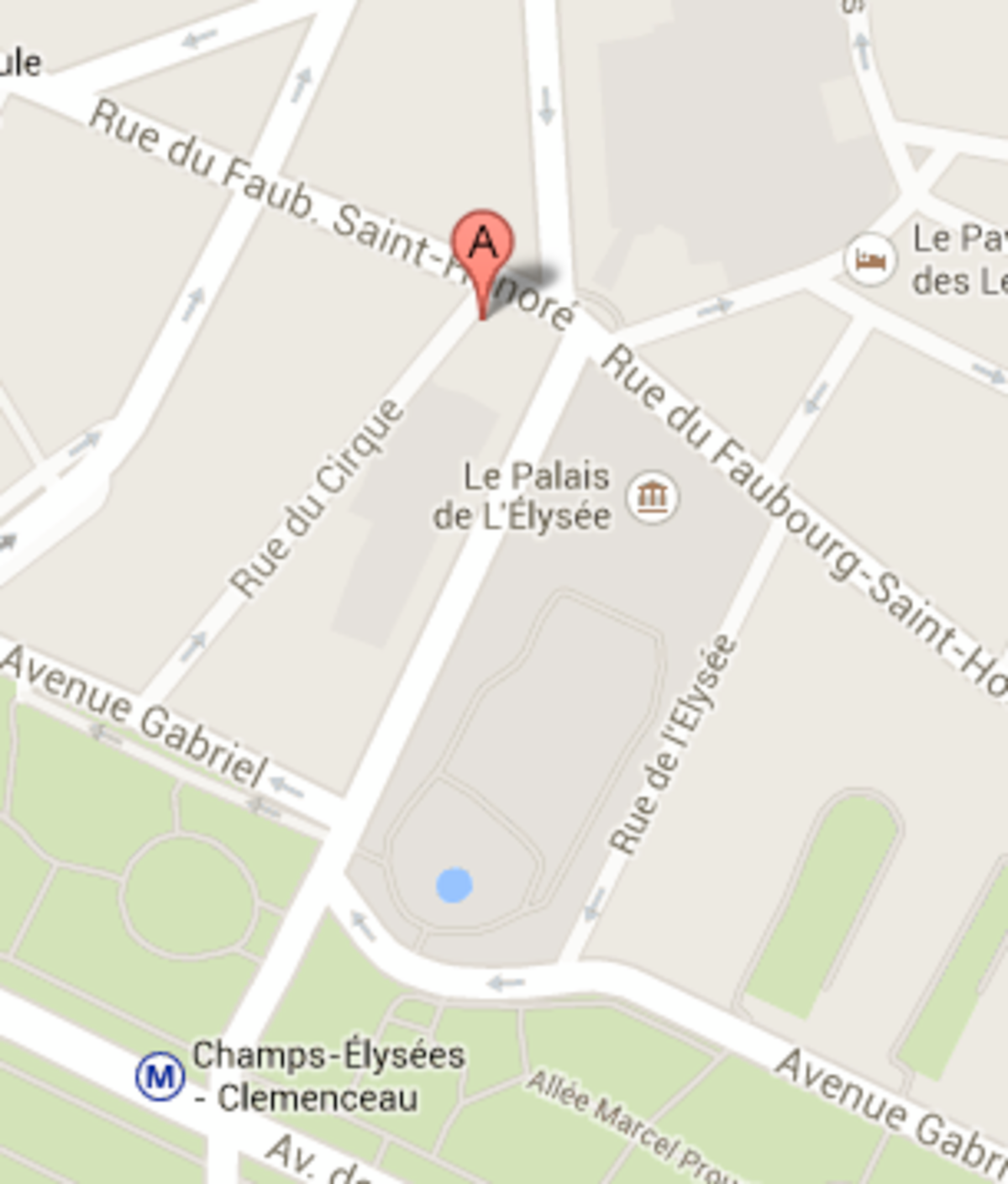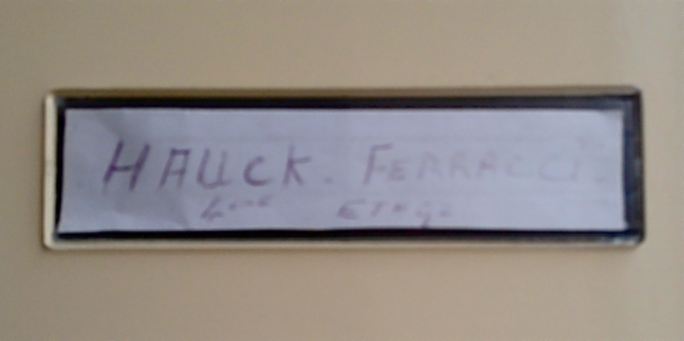
French president François Hollande's reported affair with actress Julie Gayet threatens to become a political scandal, with the revelation that the Paris flat where the couple meet is associated with a man linked to Corsican organised crime.
The fourth floor flat, situated in rue du Cirque in Paris's 8th arrondissement and close to the Elysée Palace (see map), was put at her disposal by Gayet's friend and fellow actress Emmanuelle Hauck. However, as Mediapart and Le Point magazine can reveal, the flat is linked to Hauck's ex-husband and father of her children Michel Ferracci. Ferracci - who is listed at the address in the telephone directory and whose name is still on the flat's letterbox though his lawyer says his client has never owned the property and does not live there - is himself an actor in the French television series Mafiosa, a series in which Hauck also appeared.

But more worryingly for the presidency is the fact that Ferracci was convicted in November 2013 for his role in fraud and tax evasion by the group who ran the Cercle Wagram gambling club in Paris and given an 18-month suspended prison sentence. A former director at the club, Ferracci is suspected of links to criminal gangs in his native Corsica. At the end of last November's trial the judge said that the man behind the Cercle Wagram, Jean-Angelo Guazzelli, “belonged to a Mafia group”. In particular the trial examined the links between the gambling club and la Brise de Mer, one of the most notorious of Corsican gangs.
Moreover, after Emmanuelle Hauck's separation from Ferracci she lived with a man called François Masini, also Corsican, who was said to be known to the police in connection with a number of robberies and who was also said to have links with la Brise de Mer. Masini was shot dead in northern Corsica on May 31st, 2013, in an ambush. His official death notice (see below) lists Hauck as his partner.

Enlargement : Illustration 3

These revelations raise important questions about François Hollande's reported affair with Julie Gayet, over and above the question of the continuing role of Valérie Trierweiler, who as the president's partner currently has an official role at the Elysée. They also raise issues of the president's personal protection – he is reported to visit the actress accompanied by just a single bodyguard – and the wider role of the police protection services and the interior minister Manuel Valls who is in ultimate charge of the police. How was François Hollande allowed to visit a flat with such unfortunate connections for a head of state?
There appear to be two possibilities. One is that, despite the fact that it is the police who have responsibility for the president’s security and despite all the checks and investigations that they presumably carried out about the flat and who the president was meeting, the interior minister was simply never made aware that the head of state was becoming tangled up in a world associating actors and people linked with organised crime. If so, that would indicate incompetence on the part of the police protection services.
The other possibility is that Manuel Valls was aware of the suspicions surrounding the flat. If so, it would inevitably raise questions about Valls' role in the affair and even pose questions over his loyalty.
Contacted by Mediapart, Valls's office pointed out that the presidential protection unit the Groupe de sécurité de la présidence de la République (GSPR), headed by police commissioner Sophie Hatt, has “complete autonomy in the way it works, [a policy] reinforced by the reality of [political] cohabitation [editor's note, when the president is of one party, the prime minister and other ministers of another, opposing party]”. His office added: “It is inconceivable that the minister of the interior would be aware of a president's private life. When Jacques Chirac had a stroke [editor's note in 2005] the minister of the interior Nicolas Sarkozy did not know. We're not in the United States: if a minister or a national political leader decides not to accept a security detail, it is not imposed on them.”
Some people will inevitably ask whether the president, swept away in his passion, fell into a political trap because he was never informed of the suspected links between the flat, its former occupants and organised crime.
----------------------------------------------------
English version by Michael Streeter


